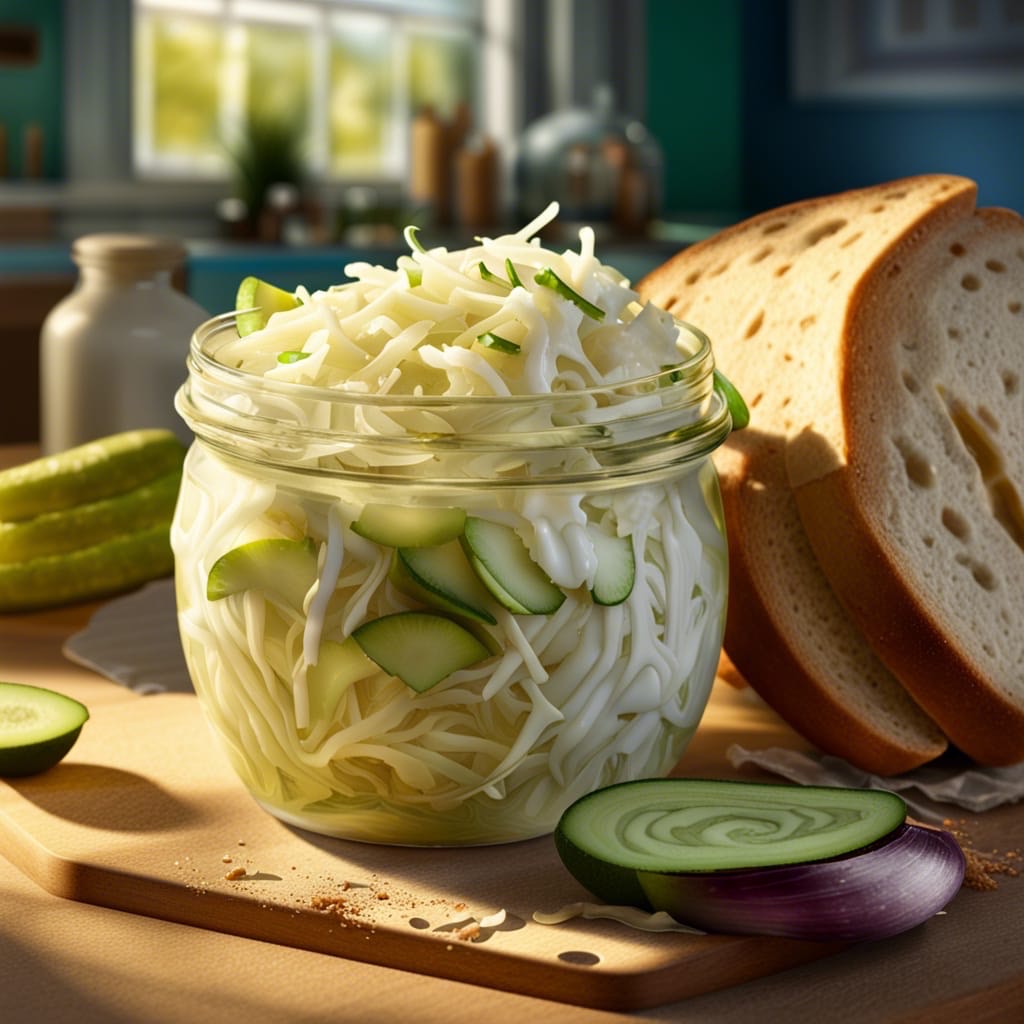Fermented foods have been a part of human diets for centuries, celebrated for their unique flavors and potential health benefits. In this ultimate guide to fermented foods, we will explore the fascinating world of fermentation, its benefits for our well-being, various types of fermented foods, and provide you with delicious recipes to try at home. Get ready to embark on a journey of taste, nutrition, and culinary adventure!
I. What is Fermentation?
Fermentation is a natural process that involves the breakdown of carbohydrates by microorganisms such as bacteria, yeasts, or fungi. These microorganisms convert sugars into various compounds, including organic acids, alcohol, and gases. The process of fermentation not only transforms the taste, texture, and aroma of foods but also enhances their nutritional value and shelf life.
II. The Benefits of Fermented Foods
Fermented foods offer numerous benefits for our health and well-being. Here are some key advantages:
Gut Health and Microbiome Balance: Fermented foods are rich in beneficial bacteria known as probiotics. These probiotics help maintain a healthy balance of gut bacteria, support digestion, and strengthen the immune system.
Enhanced Nutrient Absorption: Fermentation can increase the bioavailability of nutrients in foods, making them easier for our bodies to absorb. This includes vitamins, minerals, and antioxidants.
Improved Digestion: The enzymes produced during fermentation aid in the breakdown of food, promoting better digestion and alleviating digestive issues such as bloating and gas.
Strengthened Immune System: Approximately 70% of our immune system resides in the gut. Consuming fermented foods with probiotics can support immune function and help protect against pathogens.
Reduced Food Allergies and Sensitivities: Fermentation can break down proteins and other compounds that may trigger allergies or sensitivities, potentially reducing adverse reactions.
Anti-inflammatory Effects: Some fermented foods possess anti-inflammatory properties, which can help mitigate chronic inflammation, a key factor in various diseases.
Weight Management and Metabolism: Certain fermented foods, such as kimchi and kefir, have been associated with weight management and improved metabolic health.
III. Common Types of Fermented Foods
There is an incredible diversity of fermented foods from different cultures around the world. Here are some popular types:
Yogurt: Made from fermenting milk with bacterial cultures, yogurt is a versatile and widely consumed fermented food. It is rich in probiotics and can be enjoyed plain or used in various recipes.
Sauerkraut: Sauerkraut is a traditional German dish made by fermenting finely shredded cabbage with salt. It offers a tangy flavor and is a great source of probiotics and vitamin C.
Kimchi: A staple in Korean cuisine, kimchi is a spicy fermented vegetable dish, primarily made from cabbage. It is loaded with beneficial bacteria and is often enjoyed as a side dish or used in various recipes.
Kombucha: Kombucha is a fizzy, tangy beverage produced by fermenting sweetened tea with a culture of bacteria and yeast. It contains probiotics and is available in a variety of flavors.
Miso: A traditional Japanese seasoning, miso is created by fermenting soybeans with salt and koji, a fungus. It is commonly used in soups, marinades, and dressings, adding a savory and umami flavor.
Tempeh: Originating from Indonesia, tempeh is made from fermented soybeans bound into a firm cake. It is a popular plant-based protein source with a nutty flavor and firm texture.
Pickles: Pickling is a form of fermentation that preserves fruits or vegetables in a brine solution. Pickles can be made with cucumbers, beets, carrots, and more, offering a tangy and crunchy snack.
Sourdough Bread: Sourdough bread is made using a starter culture of wild yeast and bacteria. The fermentation process gives the bread its distinct flavor, improved digestibility, and potential health benefits.
IV. Delicious Fermented Food Recipes
Now, let’s dive into some mouthwatering fermented food recipes that you can try at home:
Homemade Yogurt: Learn how to make creamy and tangy yogurt from scratch using milk and a starter culture. Customize it with your favorite fruits or toppings.
Classic Sauerkraut: Discover the art of making traditional sauerkraut with just cabbage and salt. Ferment it for a few weeks and enjoy the tangy and crunchy goodness.
Easy Kimchi: Create your own batch of vibrant and spicy kimchi by fermenting cabbage, radishes, and other vegetables. Adjust the heat level to your preference.
Refreshing Kombucha: Brew your own kombucha at home by fermenting sweetened tea with a kombucha culture. Experiment with different flavors by adding fruits or herbs during the second fermentation.
Flavorful Miso Soup: Whip up a comforting bowl of miso soup by combining miso paste with dashi (a Japanese broth) and adding tofu, seaweed, and vegetables of your choice.
Tempeh Stir-Fry: Enjoy a protein-packed tempeh stir-fry with colorful vegetables and a savory sauce. Serve it over rice or noodles for a satisfying meal.
Quick Pickled Vegetables: Experiment with pickling various vegetables like cucumbers, carrots, or radishes in a simple brine solution. These tangy pickles make a fantastic addition to sandwiches or salads.
Artisan Sourdough Bread: Embark on the rewarding journey of making your own sourdough bread using a natural starter. Experience the aroma, taste, and texture of freshly baked bread.
Congratulations! You’ve now explored the world of fermented foods, understanding their benefits, exploring different types, and even trying your hand at some delicious recipes. By incorporating fermented foods into your diet, you can enhance your gut health, support digestion, and enjoy a wide range of flavors and textures. Whether you’re a fan of yogurt, sauerkraut, or kombucha, there’s a fermented food out there to suit your taste and dietary preferences. So, let your culinary adventures continue as you savor the wonders of fermentation and embrace the health benefits and gastronomic delights it brings to your table. Cheers to a happy and healthy fermented food journey!

